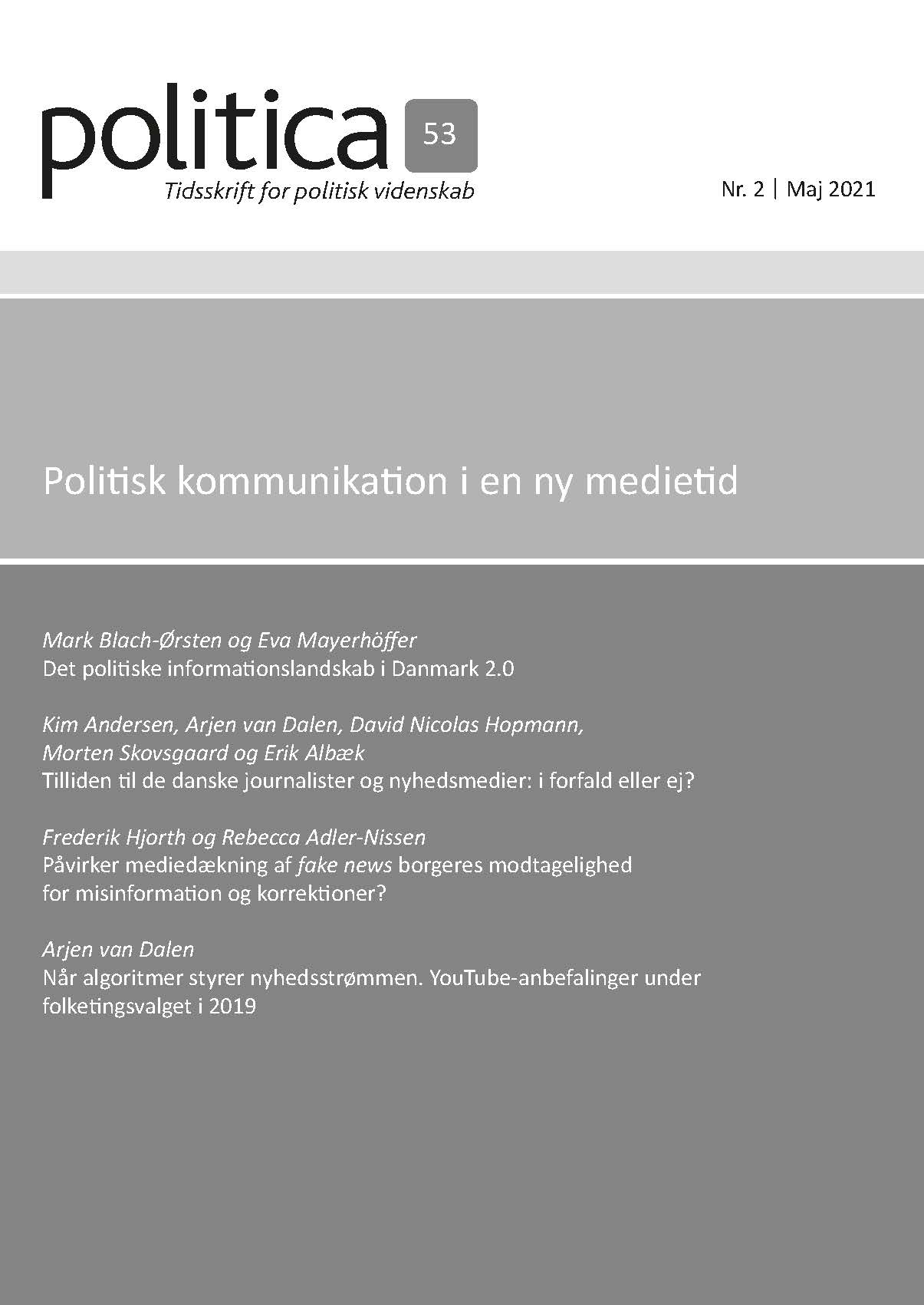When algorithms steer the news: YouTube recommendations during the 2019 national elections
DOI:
https://doi.org/10.7146/politica.v53i2.130390Keywords:
algorithms, filter bubble, YouTube, parliamentary elections 2019, selective exposureAbstract
What people see and read in the media is no longer only determined by journalists, but increasingly by algorithms. These algorithms select, sort, and prioritize our information. Automatic processes like YouTube’s recommendation algorithm influence our views of the world. An important democratic question is whether YouTube’s recommendation algorithm incidentally exposes the audience to political information after watching entertainment content and whether the algorithm creates a filter bubble by primarily recommending content with a similar political perspective. During the Danish parliamentary elections 2019, the recommendation algorithm was more likely to lead viewers away from news and public affairs than towards political content. After watching a video posted by political parties Venstre or Stram Kurs, the algorithm primarily recommends videos from these same parties, which could strengthen confirmation bias and reinforce political beliefs. For other parties, this was less the case. Little evidence was found that the recommendation algorithm leads viewers from mainstream content to extreme right content.





